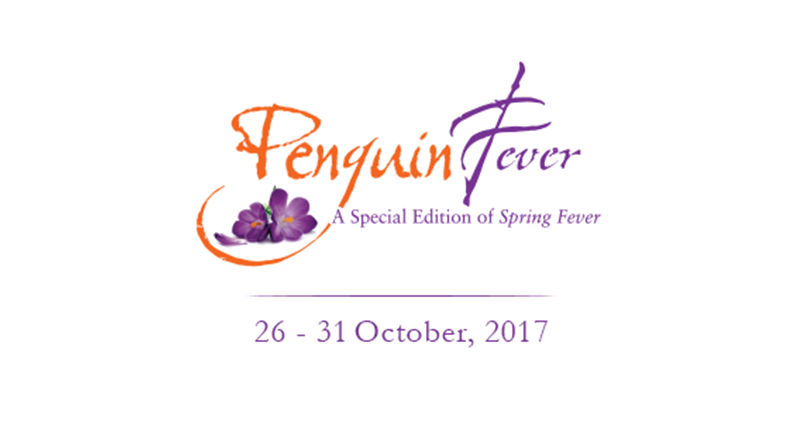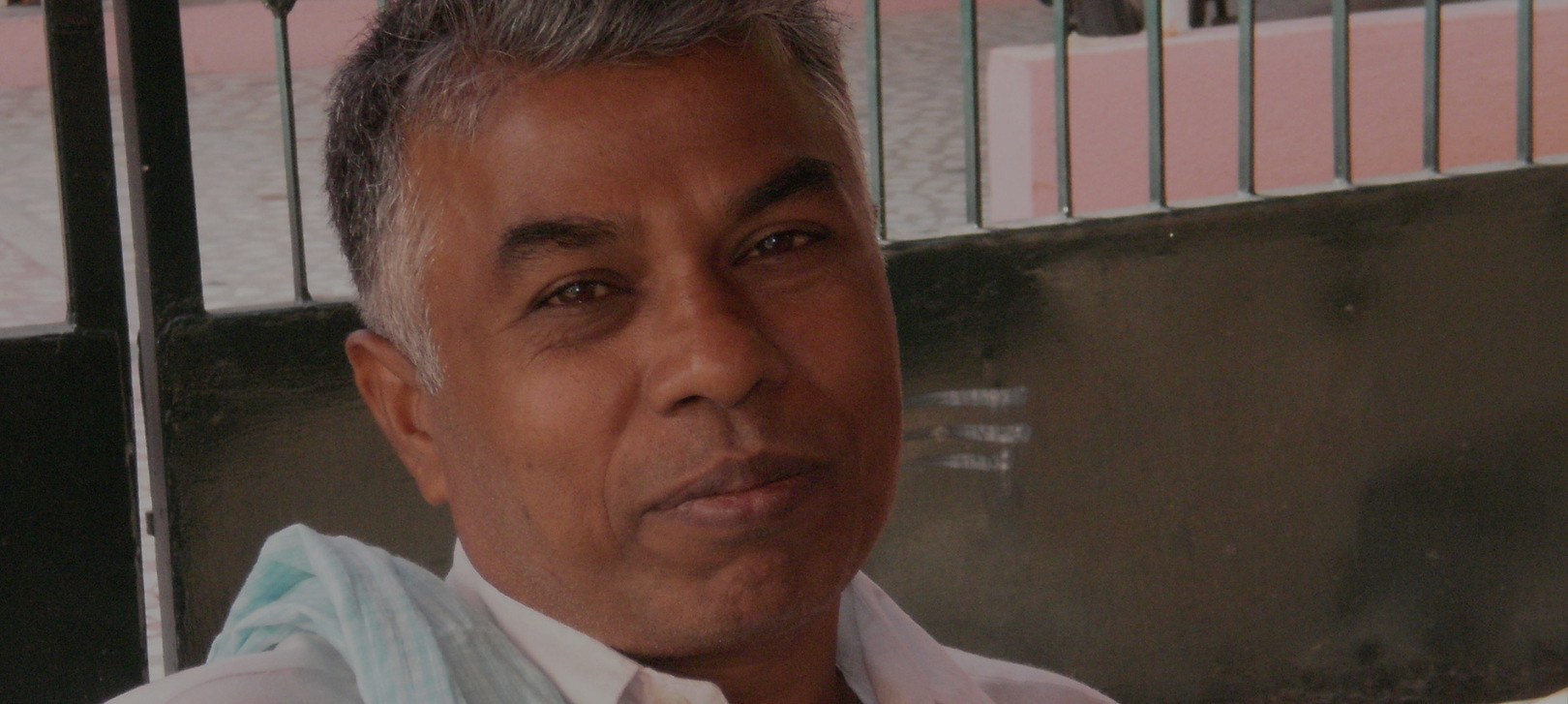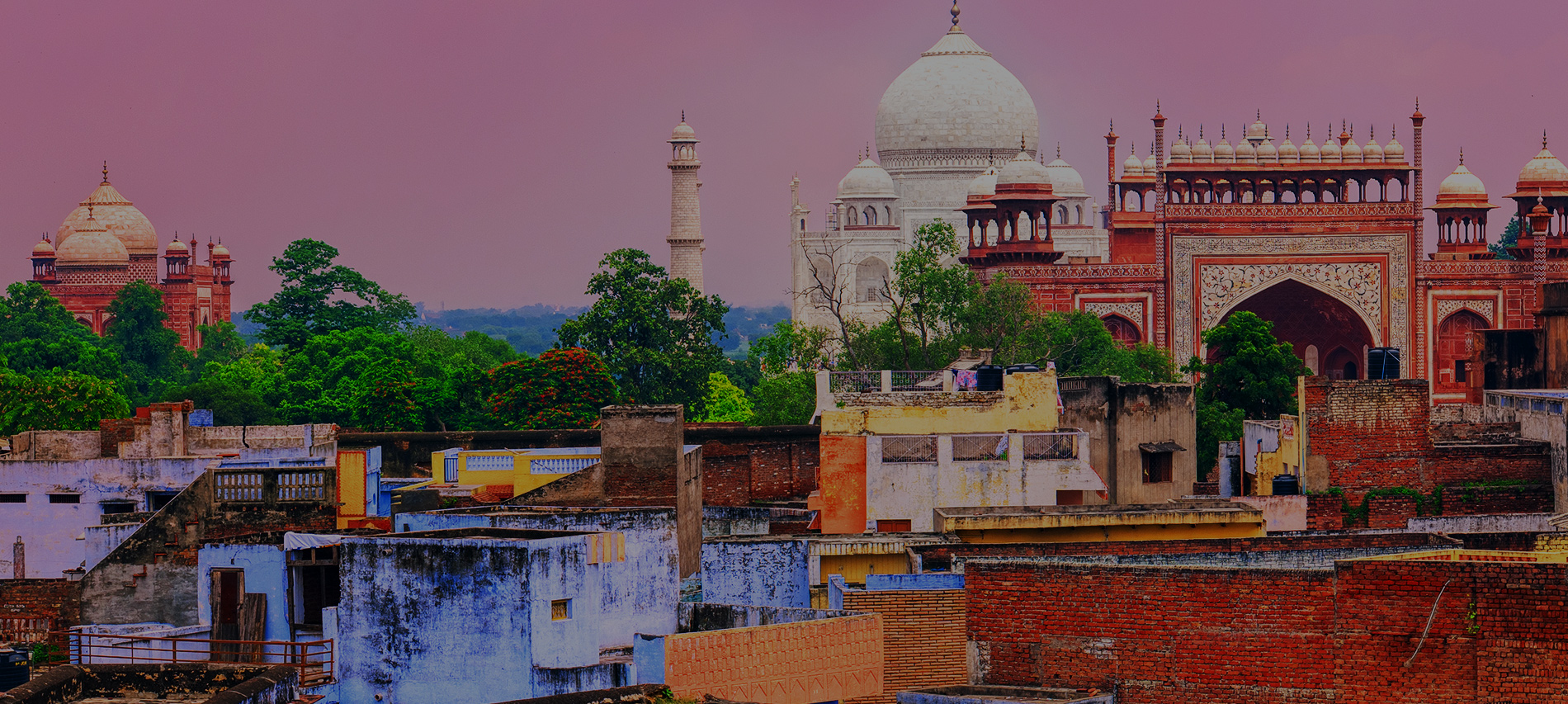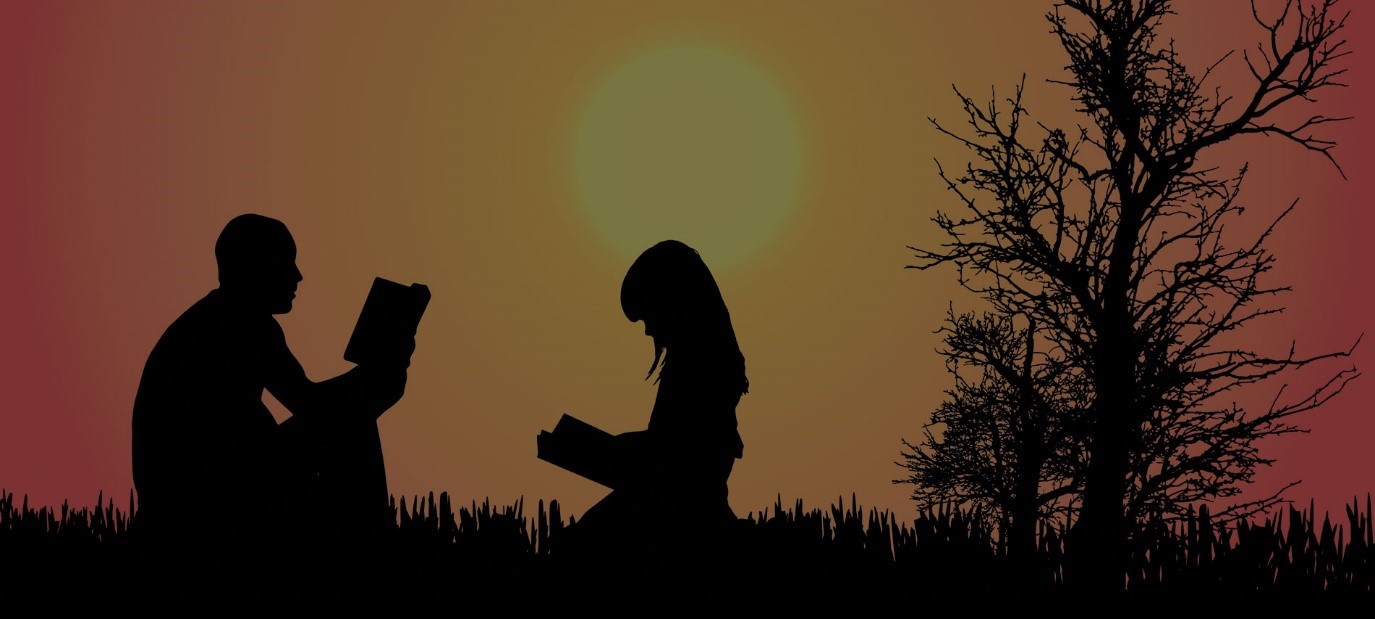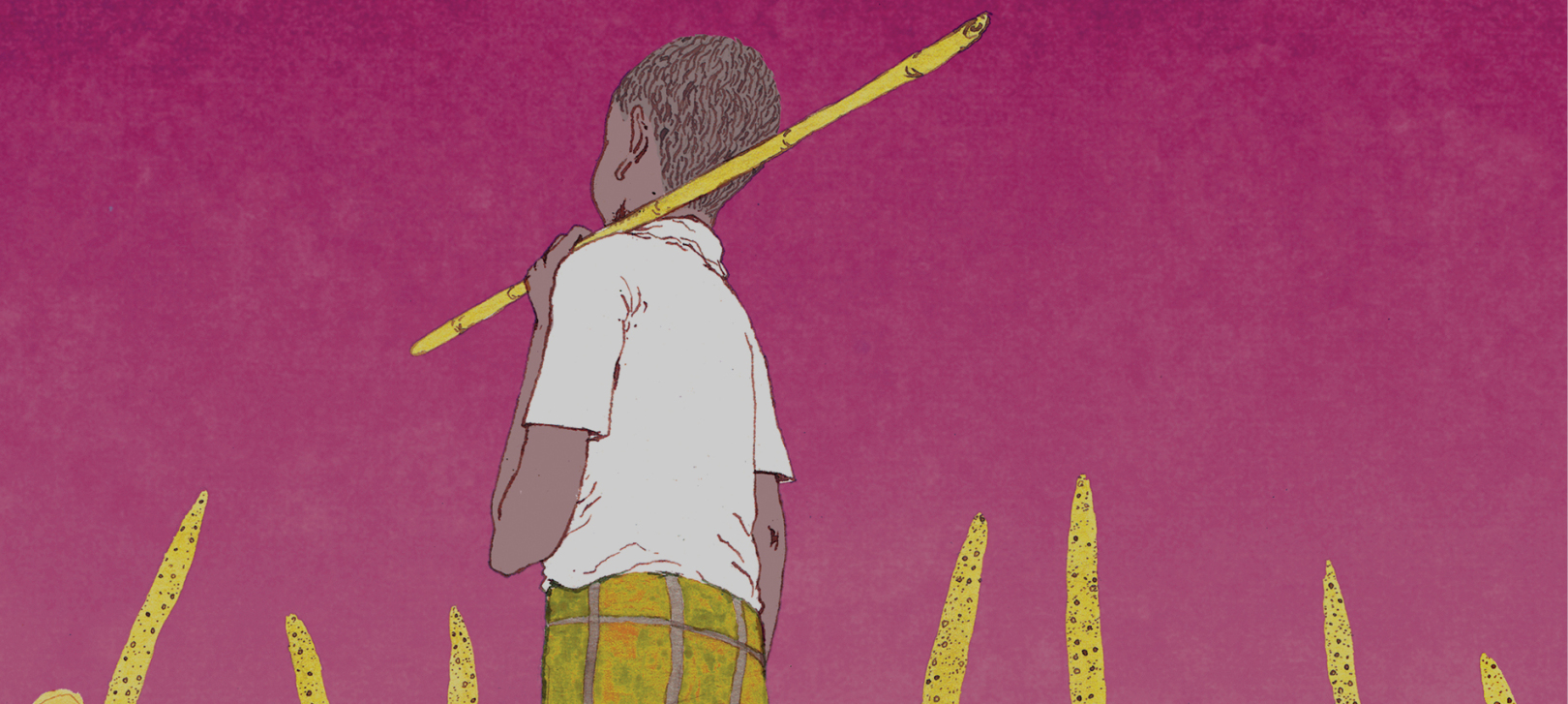Perumal Murugan’s body of work boasts of several novels, short story collections and poetry anthologies. An author and scholar, Murugan write in Tamil. His bibliography has also been translated into many languages over the years.
His new book Songs of a Coward : Poems of Exile weave an exquisite tapestry of rich images and turbulent emotions.
Here are 10 poems which will stir your emotions.










Evocative and mesmerising lines which will leave an imprint on your heart.

Tag: Perumal Murugan
8 facts on Perumal Murugan You Didn’t Know About
Penguin Fever Schedule
It’s that time of the year again but this time it’s under the autumn sky. Six days of literature extravaganza is going to start from October 26, with numerous literary icons as panelists.
Here are the dates you should mark on your calendar.
October 26, 7PM: The Ministry of Utmost Happiness – Arundhati Roy in conversation with Shohini Ghosh
October 27, 7PM: Zara sa jhoom loo main – Shobhaa De on turning seventy – and having a blast! In conversation with Vidya Balan. Sonia Singh to moderate
October 28, 5PM: Inconvenient Truths: Are we heading for an environmental disaster – Sunita Narain, Prerna Bindra, and Pradip Krishen
October 28, 7PM: The Heart of the Matter – Ravinder Singh, Durjoy Datta, and Sudeep Nagarkar in conversation with RJ Ginnie
October 29, 5PM: The Man from the Hills – Ruskin Bond on life, writing, and his love for lemon cheesecake!
October 29, 7PM: Criminal Minds – Brijesh Singh, Ravi Subramanian, Novoneel Chakraborty. Poonam Saxena will moderate the session
October 30, 7PM: The Line of Beauty – Perumal Murugan, Kannan Sundaram, Bibek Debroy, Rana Safvi, Namita Gokhale as moderator
October 31, 7PM: The Rise of the Elephant – Shashi Tharoor, Gurcharan Das, Sonu Bhasin, Shireen Bhan as moderator
Open Air Library: October 26–31, 11AM onwards
If you haven’t already, register for the Penguin Fever here: http://bit.ly/penguinfever
See you there!
Forsaken Nests —Perumal Murugan
Perumal Murugan is one of the well-known names of Tamil literature. He has garnered both critical acclaim and commercial success on his writings. Many of his writings have been translated in English and have won accolades. His book ‘Seasons of the Palm’ was shortlisted for the Kiriyama Award in 2005.
Murugan, in this piece tells us what pushed him to become a writer.
My family background could not have been the reason for my becoming a writer. I was a first-generation learner. Both my parents, and their forefathers, were illiterate. After a few years of school, I taught my father how to sign. Signing, for him, meant writing his name. He would write each letter very slowly, leaving a playground of space between two letters. At first he did not know how to pronounce these letters. He took months to learn. He felt it would be beneath the dignity of his school-going sons if he were to remain an illiterate, and so he deeply desired to wipe away that shame with just his signature.
The first time he signed his name was on my report card. That day, his face shone brightly with pride. He never asked about my marks or my ranking. For him, the happiness of signing alone would suffice. My brother would forge my father’s signature, but I did not have that kind of courage. We used to call our father’s handwriting ‘hen scribbles’—like the footprints of hens that pitted the ground when they wandered about, without any discernible form or pattern. To this day, one such signature of my father’s is preserved in my tenth-standard register.
I have never had occasion to regret my being born in an illiterate family. Rather, it was an advantage. I enjoyed absolute freedom as far as my education was concerned. I was free to study; I was also free not to study. No one asked me why I studied Tamil often or told me to study mathematics instead. I alone decided the standard till which I would study. While selecting a field of study of my interest, there was no interference. Nothing can equal the joy one feels at the freedom to make one’s own decisions when young. And because I was born to unlettered parents, I enjoyed the peak of such happiness.
After completing my tenth standard, I myself decided on the branch of study I would pursue in the eleventh standard. Though I had secured more than 80 per cent in the core subjects, I opted to study Tamil literature instead of pursuing science or a technical education. My father willingly accompanied me wherever I wanted to go. If anyone asked why I wasn’t studying something else, he would simply say, ‘It’s his choice.’ This being my ‘educational background’, I cannot ascribe my interest in writing to any of my family members, including my grandparents and parents. I myself struggled and learnt to swim in the great flood. And that happiness still lingers in me today.
How the vocation of writing possessed me can be traced to my childhood. There were not many houses in the place where my family lived. Our household was just one among four on a dry, rain-fed stretch of land called ‘Mettukkaadu’. Unlike in other places, farming in the Kongu region demands more than just a few hours of work and a supervisory visit to the field once in a while. In fact, one had to struggle on the land along with the cattle, night and day. Hence families lived in single tenements on their farms. Along with our grandparents as well as two paternal uncles, we numbered four families in all, and we lived close to each other. Some other houses were also there, scattered in the distance.
I was the youngest boy among the families residing there. Those born after me were all girls. There were no playmates of my age. The difference in ages between the older boys and myself was such that I had to call them anna (elder brother) or mama (uncle). A boy playing with girls would be branded as girly and, in any case, boys looked down upon the games of girls. Hence I had to invent games and play them all by myself. I had to imagine playing and conversing with many people, and I even role-played those other people. I had a lot of uninhabited open space at my disposal. Otherwise I would withdraw into myself like a snail if anyone came near me. I barely spoke in public. I was very quiet, a good boy who did not know of mischief.
But in my lonely private terrain I was an adventurer doing all kinds of things. A circular rock in the middle of the farmlands became my regular playground. When the crops stood high and tall around me, I grew more enthusiastic about my private world. For instance, I very much liked the oyilattom—a folk dance staged during temple festivals. Of course, in the middle of a crowd, my body would freeze up; no force could loosen it. But it would become elastic once I reached the rock. The little sparrows living amid the millet crops and the big birds in the sky would move away, either in awe or in fear. However, one day, while I was dancing in my haven, a tree-climber scaling a palm tree in the vicinity happened to witness my antics. In no time he spread the word about my dancing. After that, I could not show my face in public. From then on, the rock was abandoned. That is just how bashful I was.
An unbridgeable solitude and the fictional world that I created in my private space together have propelled me towards writing. Apart from my textbooks, the magazine Rani was the only book that I got hold of by chance. ‘Kurangu Kusala’ and the children’s segment were the sections I really enjoyed. I started composing verses in line with those in the children’s segment. I sent those songs—rhyming ‘Little, little cat; beautiful cat’—to a radio station a few years later. Most of them found a place in the programme Manimalar broadcast by the Trichy Radio Station. The station would not announce in advance whose songs would be aired so I could never be sure whether my rhymes would be broadcast. And if they were aired, I had no one to share the news with. I did not reveal any of this to others for fear of being ridiculed. But these broadcasts boosted my confidence and eventually helped kindle my desire to publish.
I also had a habit of writing long stories modelled on the children’s series ‘The Secret of the Magical Mountain’ and ‘The Princess of the Hill Country’ that were published in Rani. Tunnels figured prominently in my stories. I loved the image of a shy, fearful person walking through dark tunnels all alone. I would imagine a variety of tunnels; myriad figures would appear as stumbling blocks on the way; those things were dear to my heart.
This was how I came into the world of writing. Even at a young age I could perceive writing to be a way of expressing myself. Still, I have been known as a writer in public only these twenty-five years. If I were to count my published works, there are ten novels, four collections of short stories and four anthologies of poetry. I have compiled a dictionary on the local dialect. Some collections of essays have been published; some others compiled. If all my essays get compiled, then there might be some more books.
One who journeys through my works may happen to identify certain common features. I think most of these would relate to my childhood attitude. When I take a step back and view my work from a distance, I discern that by presenting an observation that has occurred to me, perhaps I could give readers an idea of my childhood. For instance, references to the house are made here and there in my works. But the reader cannot reconstruct the house out of these references. My works don’t have elaborate descriptions of the house, nor are the house and its parts at the centre of the scheme of things. All that my writings needed was the expansive open space. The house as an entity is not suited to fill in the open space. Rather, the house could be seen as an eyesore troubling that space. This attitude can be seen at its peak in my novel Koolamadhari, where the expanse is all pervasive. My childhood idea of the house was only that of a granary—used to store the grains for a year’s requirements. Cooking and sleeping were done outside the house. Even the stove used to be outside the house. A portable charcoal oven was used for cooking during the rainy season. Sleeping took place either in the yard or in the goat pens and the mangers. Though I have become accustomed to the middle class way of life, to this day, I like the open space the most.
Birds do not inhabit nests. They build nests, out of necessity, during the reproductive season. They require the protection of the nests for laying and hatching their eggs and till the nestlings spread their wings to fly. Then the nests are abandoned—forsaken on the trees, fallen on the stones, empty holes left behind after the chicks have grown up. I feel as though my childhood dispositions lie embedded in me in the form of such deserted nests. And it feels right to say that my works encompass such nests.
Translated by: V. Premkumar
Get copies of Seasons Of the Palm, Current Show, and Pyre here.
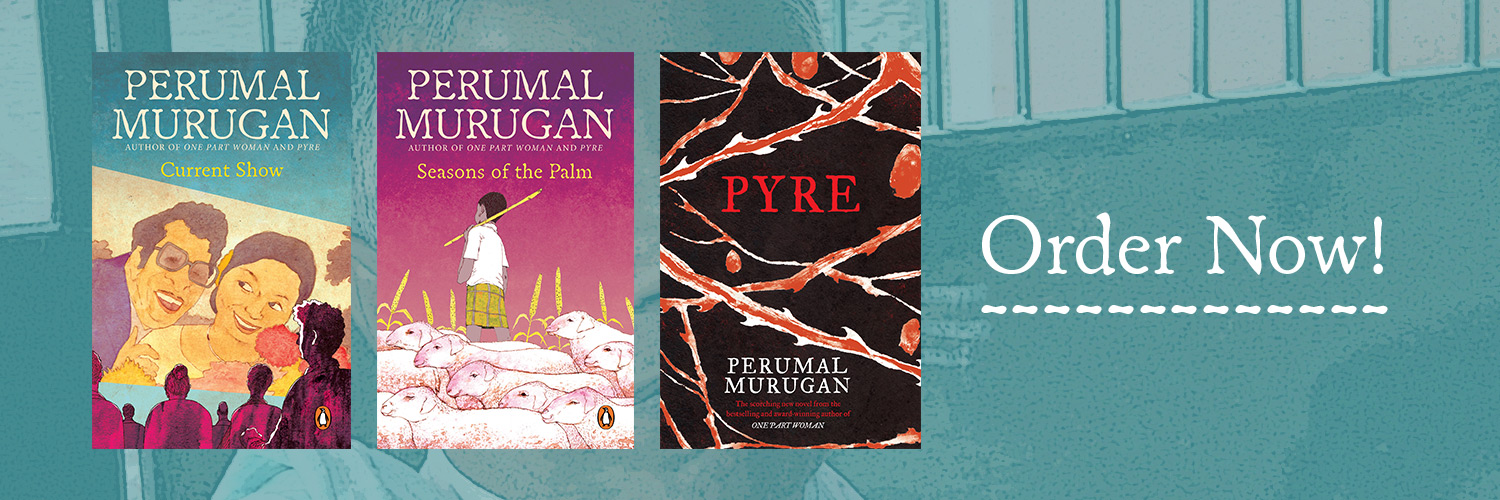
3 Times Perumal Murugan Showed Us How Different Yet Similar Cities and Villages are
Celebrated Tamil scholar and writer, Perumal Murugan, was born in a family of farmers.. Murugan’s Current Show and Seasons of the Palm, translated to English from the Tamil originals, are set against the backdrops of a city and a village respectively. Drawing from his personal experiences, the writer draws striking contrasts between life in a city and life in the countryside.
Here are 3 times Perumal Murugan showed us how cities and villages are nothing but the two sides of the same coin.
When he showed us how different the experience of going to the theatre is in a city and a village.


When he showed us how shops in a city were not the same as shops in a village.


When his stories showed us the contrast in how the divine is evoked in the inhabitants of a city and a village.


As Murugan takes us through the concrete jungles of the city and the dusty lanes of the village, tell us how you’ve experience the rural and urban differently.
5 Books To Gift Your Dad This Father’s Day
Fathers have been our first superheroes, first teachers, and best friends.
So what do you say to a man who leaves you speechless with his actions and immense love? If you too find it difficult to articulate your feelings in words, here are five books that will do the job for you and will make for the perfect gift this Fathers’ Day:
The Digital Matrix
 Venkat Venkatraman simplifies industrial and digital companies. It is a management framework that will help you understand the forces that influence your business. If your father is also your best advisor, Digital Matrix will give you the opportunity to discuss the new coming of age business landscape with him and will make for a great gift!
Venkat Venkatraman simplifies industrial and digital companies. It is a management framework that will help you understand the forces that influence your business. If your father is also your best advisor, Digital Matrix will give you the opportunity to discuss the new coming of age business landscape with him and will make for a great gift!
Small-Town Sea

Anees Salim’s book is a tale of a thirteen year old boy who is uprooted from a bustling city and is planted in his father’s home town. Small-Town Sea captures his adventures with a new friend, settling in a new life and once again being unsettled by his father’s death. The book is sharply hilarious and painfully sad, it is everything your father would love to read on a relaxed afternoon.
Dastan-e-Ghadar

Zahir Dehlvi’s memoir chronicles the fading glory of the Mughal court and describes the horrifying account of the 1857 revolt. Dastan-e-Ghadar is a compelling read by the poet who lived through the revolt of 1857, known for changing the course of history. Translated in English for the first time, the book is gripping, moving and rich in insight. For a father who is a history buff!
Friend of My Youth

A writer in the search of a city he grew up in, and barely knows. Friend of My Youth, is an observation on the power of memory, a brilliant writing expressing the interference of childhood with adult life. Your first friend, your father will definitely appreciate this tale of friendship and life.
Marching With A Billion

Do you also enjoy sitting down with your dad and discussing politics? Marching With A Billion, a book that analyses Modi Government’s three year in power is an interesting read about key areas of governance like infrastructure, power, and social sector. Uday Mahurkar gives answers to all such questions about Modi’s test of governance.
So, what is going to be your dad’s Fathers’ Day gift? Tell us.
7 Quotes by Perumal Murugan that Describe a Difficult Childhood
Perumal Murugan’s works provide a poignant commentary on the religious and caste practices prevalent in the society. His stories vividly capture the pain a person from the lower strata of society goes through every day.
His novel Seasons of the Palm, which was shortlisted for the Kiriyama Award, is merciless in its portrayal of the daily humiliations of untouchablility. It also evokes the grace with which the oppressed come to terms with their dark fate. Shorty, the central character of Murugan’s novel is one such young untouchable who is in bondage to a powerful landlord.
Here are a few quotes from the book that will give you a glimpse of Shorty’s hardships:
Being Awakened by a Stinging Whiplash

When You Can’t Wash Off Your Stink

Untouchable and Barred from Touching

When the Bare Necessities Turn into Luxury

A Paid Slave

Not-so-Good-Morning

When Your Days Are Like Empty Bowls

Aren’t they painful yet powerful? Tell us what do you think.


















